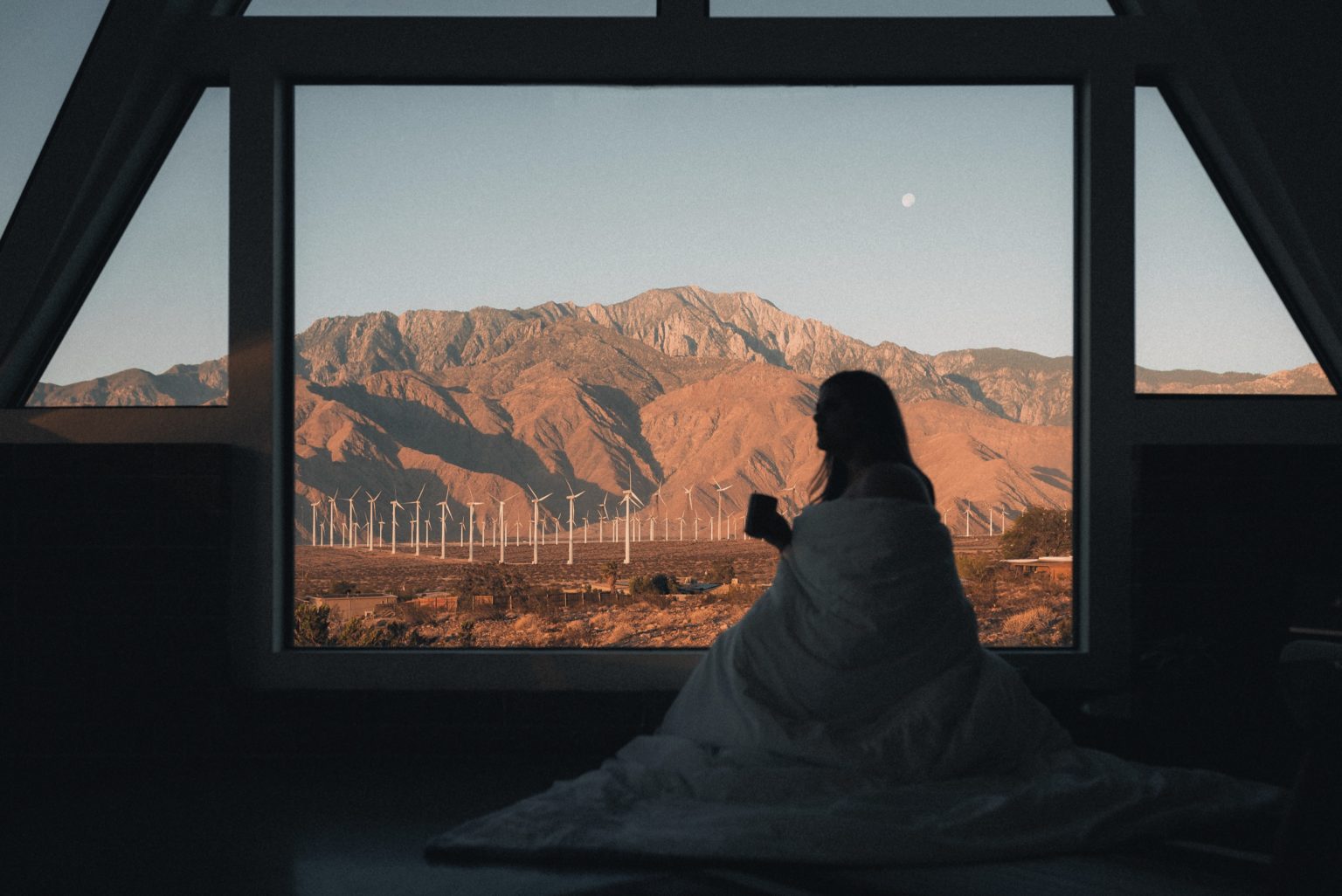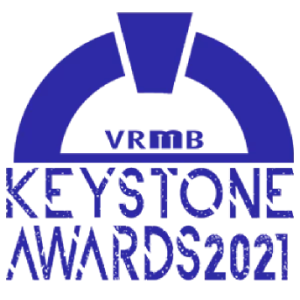Expanding your reach is crucial to maximizing your occupancy rates, and, by listing on Airbnb, you tap into the platform’s massive user base and global reach.
But limiting yourself to one channel—even one that’s an enormous global brand—places a limit on your potential.
Breaking free from being a co-host and building your own brand on your own terms is more important and accessible than ever.
Eli Pritykin, Hudson Creative Studio
With your own direct booking website, you can gain more control, cut what you spend on commissions, and have more repeat guests.
But there’s still plenty more to explore when comparing listing on Airbnb with managing your own direct booking website, so in this article we look at:
- The advantages of having your own website
- The benefits of listing on Airbnb
- Why you don’t need to choose between Airbnb and a direct booking website
- Three ways to build your site
- Website examples to inform and inspire you
*Figures true as per Airbnb and Vrbo as of October 2022
Benefits of having your own direct booking website
Your direct booking website is a tool for creating an elevated brand experience, fostering loyal customer relationships, and increasing revenue. This is made possible by the following factors, which we discuss below:
- Savings on online travel agency (OTA) fees
- Owning your listings
- Driving repeat bookings
- Building your brand
- Controlling your cancellation policy
A well-designed, high-functioning website will help you tap into hidden revenue, grow your audience, better control the guest experience, and take your business to the next level.
Eli Pritykin, Hudson Creative Studio
1. Save on OTA fees
When you rely on OTAs like Booking.com or Airbnb, you risk paying high commission fees and booking charges, which can eat into your profits.
For example, most Airbnb hosts pay a flat service fee of 3%, and guests pay around 14% of the booking subtotal. Meanwhile, Vrbo charges a 5% commission fee on the rental amount and a 3% payment processing fee.
When you create your own direct booking website, though, there are no such commissions. So you have bigger margins to work with, which you can use to offer discounts as incentives to book, to reinvest in your properties and services for a better guest experience, or simply to add to your take-home profit.
2. Own your listings
OTAs restrict listings to their formats, character limits, and amenity lists. With your direct booking website, you can show off your rental property’s unique features in your own authentic way.
You can add:
- The history of the property
- More detailed descriptions of what makes your rental stand out from the competition
- Multiple pictures and videos without any file size limit
So, even if OTAs change their policies or go out of business, you can continue to list and market your properties on your terms.
3. Drive repeat booking
Usually, OTAs don’t share guest data as they comply with privacy laws that dictate how personal information can be collected, processed, and shared. This limits your ability to reach out to guests, nurture relationships, turn them into repeat customers, and maximize your vacation rental income.
When you set up a direct booking website, you can ask for and collect data like email addresses, contact numbers, and rental history from your guests. You can then use this data to send share updates, offers, and discounts.
For example, if guests have stayed at your properties several times before, you can offer them loyalty discounts to get repeat business. This is also a good time to share a branded digital guidebook that provides useful resources like your house rules, suggestions for activities and dining, or discounts for your local partners.
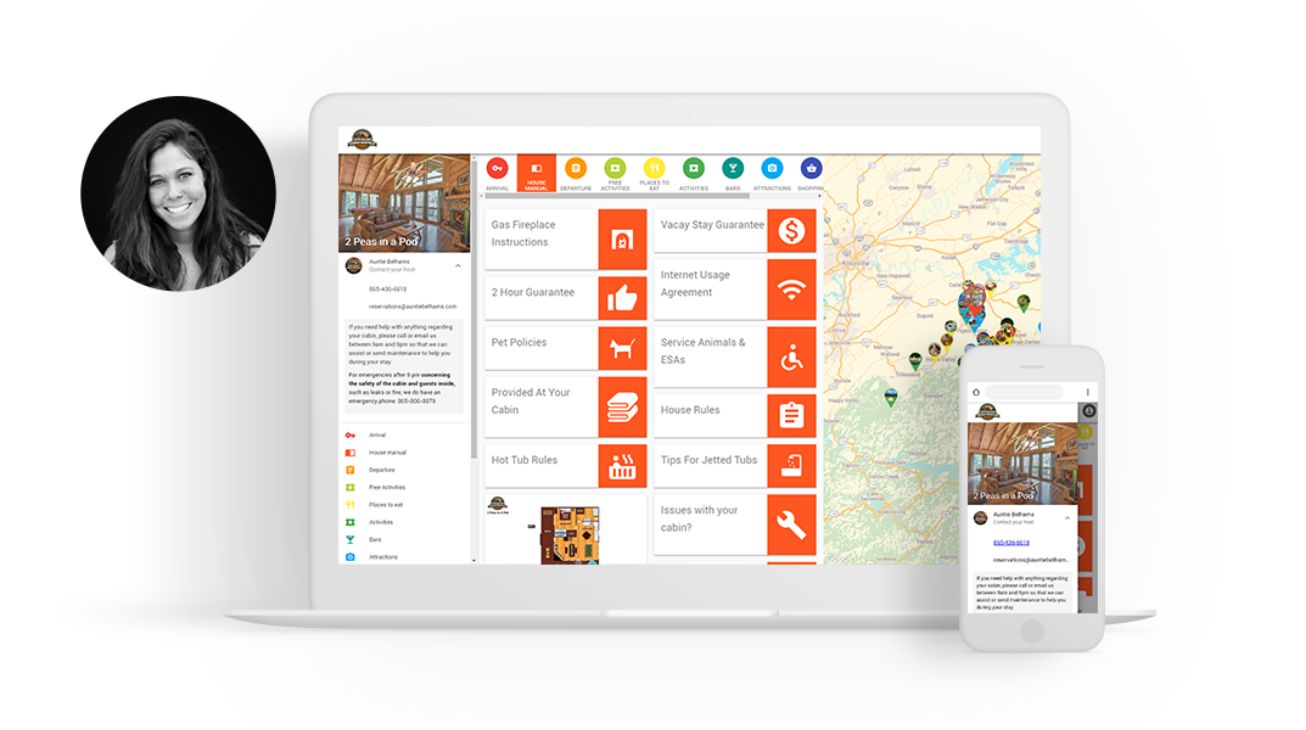
Source: homesweethudson.com
4. Build your brand
Building a strong presence on OTAs can be time-consuming and expensive as you need to keep up with their policies and algorithms as they update and evolve.
Also, your listing is just one of many, so guests tend to focus more on the OTA brand than yours—which means you rarely experience the benefits of their brand loyalty. And this makes it harder to differentiate your stays from the rest, even when you’re offering something truly unique.
On the other hand, a direct booking website lets you create a unique user experience that reflects your brand values and personality. Your website can showcase fun photos and walkthroughs, insightful property descriptions, and even interviews or local tour highlight reels.
To make this possible, you can either create a custom-designed website or choose a PMS like Hostfully that offers user-friendly, fully customizable direct booking website templates. (More on this later!)
5. Control your cancelation policy
OTAs often offer ‘book now and pay at check-in’ or ‘free cancellation’ deals to drive as much traffic and as many purchases as possible. For hosts, though, the rules are more exacting.
In 2022, Airbnb announced cancellation fees of 50% for reservations canceled within 48 hours or less of check-in, and 25% for reservations canceled between 48 hours and 30 days of check-in.*
But, whatever those policies may be, whether you disagree with them or not, you don’t have control over them—which takes crucial business and guest-relationship decisions out of your hands.
However, when you set up your direct booking website, you get to decide on the best cancellation policy for you and your guests. You can offer flexible or no-refund policies for last-minute bookings, customize the cancellation fees for each reservation, and make special exceptions for your favorite guests.
*Figures true as per Airbnb as of October 2022
6. Screen your guests
While OTAs do generally provide some screening or ID verification, they don’t guarantee the safety and security of a rental property or that a guest will be a good fit.
When you set up a direct booking website, you can decide who books at your rental without the worry of penalization or losing your Superhost status (more on this later!). With Hostfully’s AutoHost, Safely, and SUPERHOG integrations, you can take advantage of an automated screening service that gives you control over who stays at your properties.
Benefits of listing on Airbnb
Airbnb is an absolute giant platform with a whopping 6 million active listings and 4 million hosts worldwide, and more than 1 billion guest arrivals to date. So you’d be hard-pressed to ignore it even if you wanted to.
From a business perspective, though, here’s why you need to give Airbnb its due:
- It’s a household name
- It gives you reach that would otherwise be impossible
- It does your marketing for you
- It handles payment processing for you
1. It’s a global brand
According to the Hostfully 2022 Hospitality Trends Report, Airbnb dominates the vacation rental industry with a 49.5% market share in bookings.
You can also take advantage of the platform’s host-rating system, which includes providing Superhost status based on specific criteria. As a Superhost, you must maintain a 4.8+ rating on your listings, have a 90% response rate, and a <1% cancellation rate.
When you fit these criteria, you get a Superhost badge displayed on all your listings and profiles, which is a sign of quality service and trustworthiness.
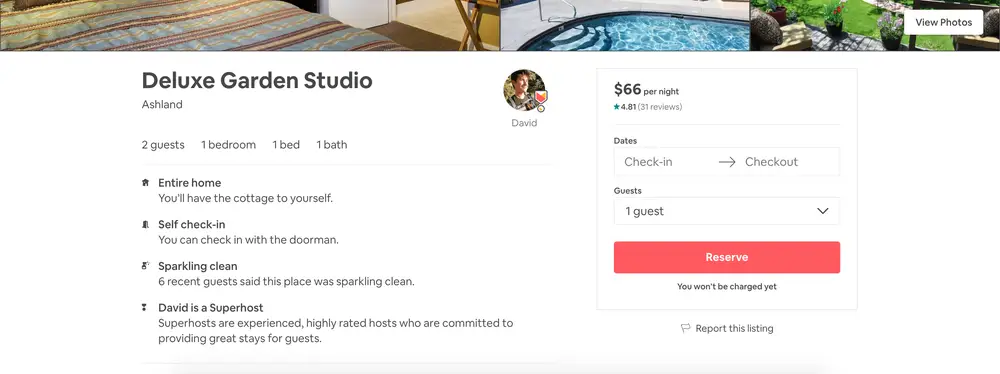
Source: homesweethudson.com
2. Reach more people
Airbnb has a massive global presence in 190+ countries, so it can give you business opportunities pretty much wherever you are on the planet.
Plus, Airbnb has a strong referral system in place. Your guests can refer friends or family through the Referral Program and earn “Travel Credits.” And since these credits can be redeemed only through Airbnb, it encourages more people to book on the platform.
This is great for Airbnb itself, of course, but it also provides proof of your quality of service, which means you can scale your short-term vacation rental business at pace.
3. Marketing done for you
Airbnb uses a combination of targeted advertising, email marketing, and search engine optimization (SEO) to increase visibility and drive bookings to your property. And, if you have more than six listings, Airbnb lets you create a personalized pro marketing page that showcases all your listings in a single location.
In terms of Airbnb’s search rankings, the platform hasn’t shared its secret recipe in detail, but there are three categories that it focuses on—guest needs, listing details, and trip details.
Using this to your advantage, as well as the power of Airbnb’s marketing and user experience tools, you can drive bookings without committing to a major marketing investment.
4. Payment processing handled for you
When a guest books a stay, Airbnb collects the payment and holds it in their secure platform until 24 hours after the guest has checked in. The platform also provides different payment options—like credit cards, debit cards, and PayPal—which makes your stays available to a wider range of travelers.
The flip side to this is that Airbnb also handles cancellation policies and refunds, which as discussed earlier, can be limiting and frustrating as a property manager. But, it frees you from worrying about managing those financial transactions, and gives you space to focus on providing a great experience for your guests.
But do you need to choose between Airbnb and a direct booking website?
Choosing between Airbnb and a direct booking website doesn’t have to be a binary decision. You can (and should) do both—diversifying your listing sources will provide you with more stability and security in the long run.
With both Airbnb and a direct booking site, you can benefit from a well-established brand name and vast network of travelers in one channel, and have full control over your pricing, availability, and service in the other.
How to build your direct booking website
There are three different approaches you can take to building your direct booking vacation rental website. But these depend on your budget, technical skills, and timeline.
These approaches are:
- Outsource to a professional
- Use the templates in your PMS
- Build it yourself
1. Outsource to a professional
If you want to customize your website from scratch, it’s a good idea to outsource the job to a web developer. With platforms like Upwork or Freelancer.com, you can find the right person for your project for a few hundred to a few thousand dollars.
This option gives you complete control and personalization over your website’s design and user experience. And if you want to make changes to your website in the future, you’re not bound to a developer, which you would be with a DIY website builder solution.
2. Use the templates in your PMS
Many PMSs come with pre-built website templates you can customize to fit your brand. Hostfully offers no-code direct booking website templates that let you create a sleek website with all the features and functionalities you need, including booking calendars, payment processing solutions, and access to all your properties and amenities.
Plus, Hostfully directly integrates with Boostly and Hudson Creative Studios.
Boostly follows a unique process to understand your brand before identifying the best design strategy to make you stand out in the market.
Hudson Creative Studios takes a structured approach by interviewing you directly and also works on optimizing loading speed with a focus on design. And once your website is ready, you can embed the booking widget directly from your PMS. So your guests can book directly from your website without being directed elsewhere.
3. Build it yourself
For those on a tight budget and/or timeline, using a DIY website builder can be your best bet. Website builders, like Wix, Squarespace, and WordPress, charge you a monthly or annual fee for hosting your website and additional charges for a custom domain.
These websites come with pre-made templates and all the building blocks you need to create a professional website. You can easily drag and drop elements, like photos, videos, and text, to customize your website’s design.
Plus, they offer basic features such as contact forms and SEO tools that help boost your website’s visibility in search engine results pages (SERPs). Bear in mind, though, if you don’t have a lot of web-building experience, you’ll still need support.
Direct booking website examples
Simple, easy-to-navigate, and brand-focused websites are some of the hallmarks of a successful direct booking website. Here are a few examples to inspire you:
1. Jungle House
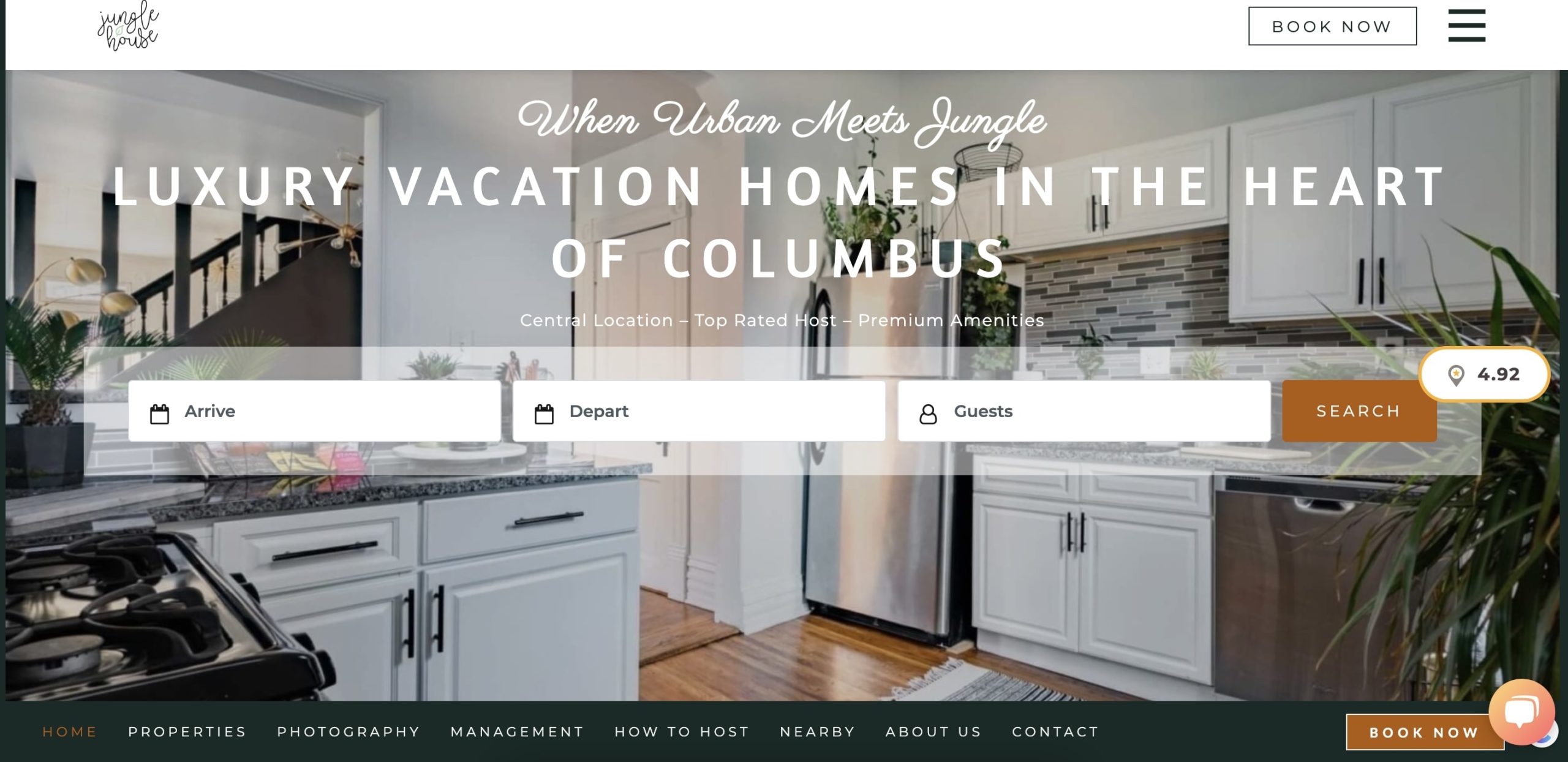
Source: JungleHouse.org
When you visit Jungle House’s website, the first thing you may notice is a reviews widget that showcases its guests’ experiences. This builds trust and credibility for the website, making it a more appealing option for potential guests. Plus they use minimal copy and let the images do the talking.
The website is custom-built by Boostly and uses the API connection to Hostfully to sync its calendar.
2. Home Sweet Hudson
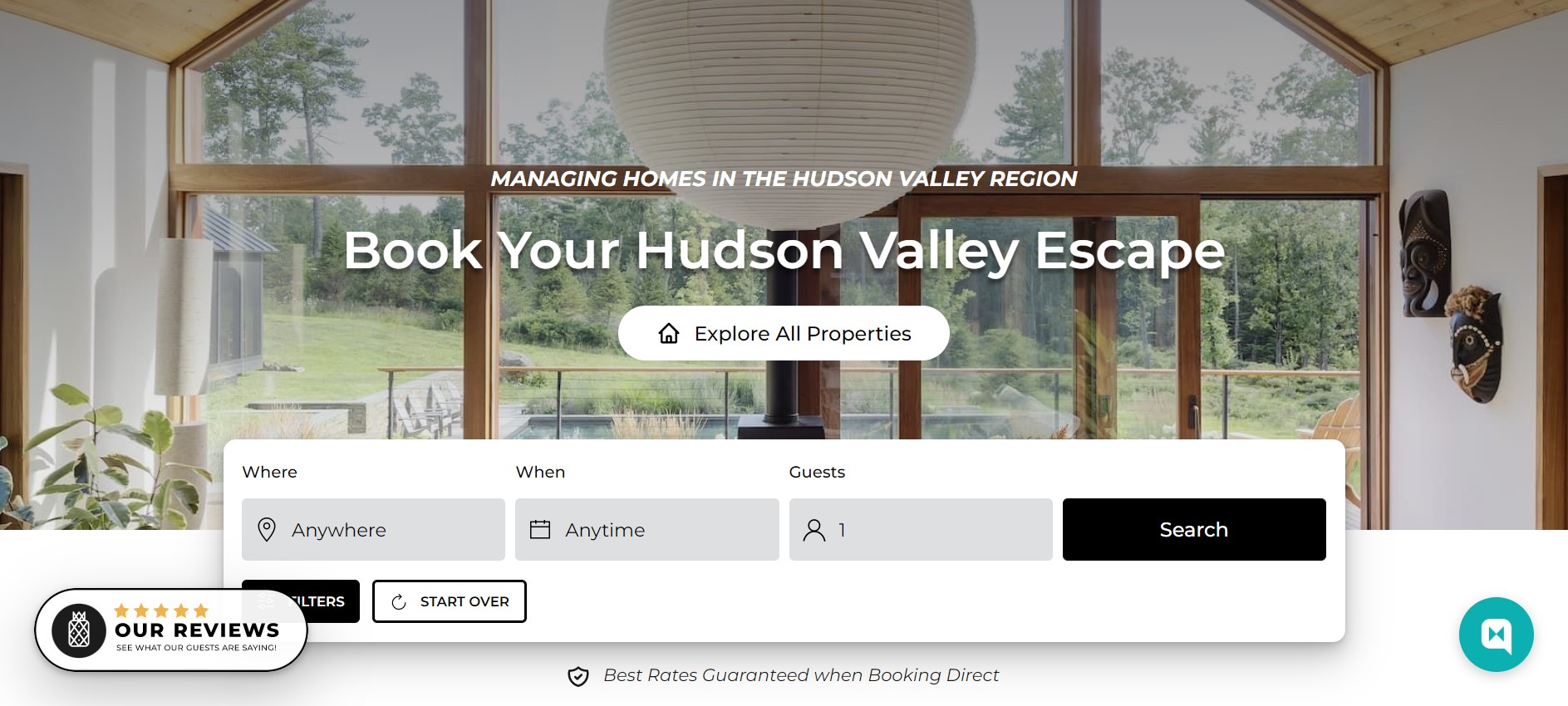
Source: homesweethudson.com
When you visit the Home Sweet Hudson website, the simplicity of the design and the focus on the brand is immediately apparent. The modern and sophisticated aesthetic, with its muted colors, bold typography, and high-resolution property imagery, immediately communicates quality and professionalism.
The property management company uses Hostfully as its PMS and uses the Hostfully booking widget to the possibility of double bookings.
4. Papagayo Luxury
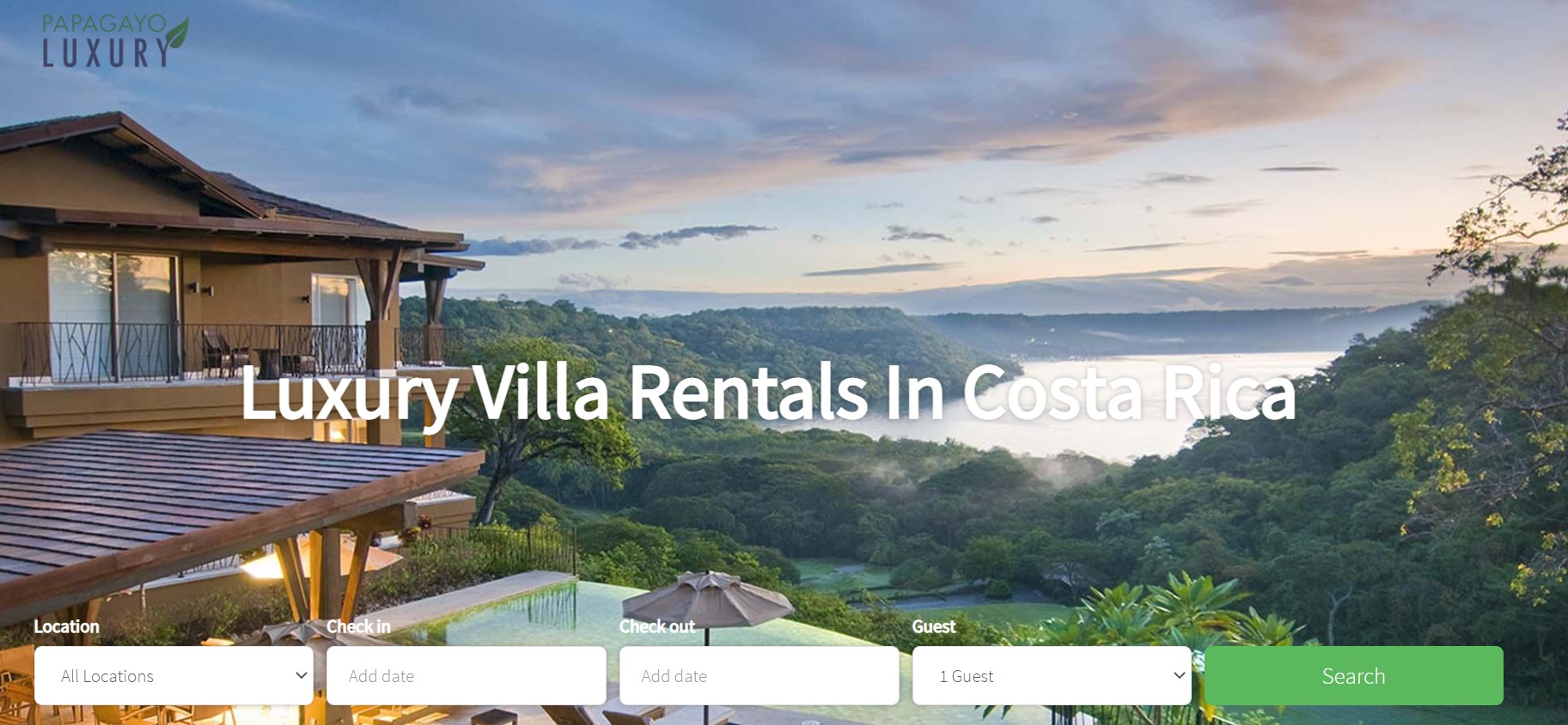
Source: PapagayoLuxury.com
The Papagayo Luxury website immediately catches the eye, making it clear what kind of guest experiences are on offer.
The booking calendar is easily accessible from the main page, allowing guests to make a reservation confidently and quickly, which is crucial to converting your interested visitors into paying guests.
Diversify your revenue streams with Airbnb and a direct booking website
Airbnb helps you market your vacation rental property to millions of travelers worldwide, manages the bulk of your marketing via its world-renowned brand, provides your audience with access to a user-friendly booking engine, and handles your payment processing
But, if you want more control over your brand identity and business, having a direct booking website lets you make strategic choices on how to drive repeat bookings, determine policies, manage guest relationships, and develop your unique, marketable voice.
You can get a custom-designed website through a design agency specializing in vacation rentals and embed a booking widget from your PMS.
Or you can partner with Hostfully for a branded website, channel manager, and guest management tools, to efficiently run your vacation rental business at scale.
Frequently asked questions about Airbnb vs Direct Booking Website
Is it cheaper to host your own website?
It may not necessarily be cheaper to host your own website if you’re just starting with limited technical knowledge and experience in website building. Hosting your own website can require significant time and resources, like purchasing a domain, hosting services, software, and security measures.
But the benefits include being able to grow a loyal customer base and having more control over your business.
What are the disadvantages of using Airbnb?
The disadvantages of Airbnb include:
- Commissions
- Lack of control over policies
- Lack of a strong brand to develop customer loyalty

